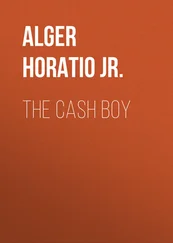Horatio Alger - The Store Boy
Здесь есть возможность читать онлайн «Horatio Alger - The Store Boy» — ознакомительный отрывок электронной книги совершенно бесплатно, а после прочтения отрывка купить полную версию. В некоторых случаях можно слушать аудио, скачать через торрент в формате fb2 и присутствует краткое содержание. Жанр: foreign_children, literature_19, foreign_antique, foreign_prose, на английском языке. Описание произведения, (предисловие) а так же отзывы посетителей доступны на портале библиотеки ЛибКат.
- Название:The Store Boy
- Автор:
- Жанр:
- Год:неизвестен
- ISBN:нет данных
- Рейтинг книги:5 / 5. Голосов: 1
-
Избранное:Добавить в избранное
- Отзывы:
-
Ваша оценка:
- 100
- 1
- 2
- 3
- 4
- 5
The Store Boy: краткое содержание, описание и аннотация
Предлагаем к чтению аннотацию, описание, краткое содержание или предисловие (зависит от того, что написал сам автор книги «The Store Boy»). Если вы не нашли необходимую информацию о книге — напишите в комментариях, мы постараемся отыскать её.
The Store Boy — читать онлайн ознакомительный отрывок
Ниже представлен текст книги, разбитый по страницам. Система сохранения места последней прочитанной страницы, позволяет с удобством читать онлайн бесплатно книгу «The Store Boy», без необходимости каждый раз заново искать на чём Вы остановились. Поставьте закладку, и сможете в любой момент перейти на страницу, на которой закончили чтение.
Интервал:
Закладка:
The proposal struck Mr. Barclay quite favorably.
"I suppose I can have the money when I want it again?" he inquired.
"Oh, certainly! I may require a month's notice to realize on securities; but if I have the money in bank I won't even ask that."
"Then take the money, squire, and give me the note."
So, in less than five minutes, the money found its way into Squire Davenport's strong box, and Mr. Barclay left the squire's presence well satisfied with his note of hand in place of his roll of greenbacks.
Nearly two years passed. Interest was paid punctually three times, and another payment was all but due when the unfortunate creditor died in Chicago. Then it was that a terrible temptation assailed Squire Davenport. No one knew of the trust his neighbor had reposed in him—not even his wife. Of course, if the note was found in his pocket, all would be known. But perhaps it would not be known. In that case, the thousand dollars and thirty dollars interest might be retained without anyone being the wiser.
It is only fair to say that Squire Davenport's face flushed with shame as the unworthy thought came to him, but still he did not banish it. He thought the matter over, and the more he thought the more unwilling he was to give up this sum, which all at once had become dearer to him than all the rest of his possessions.
"I'll wait to see whether the note is found," he said to himself. "Of course, if it is, I will pay it—" That is, he would pay it if he were obliged to do it.
Poor Barclay was buried in Chicago—it would have been too expensive to bring on the body—and pretty soon it transpired that he had left no property, except the modest cottage in which his widow and son continued to live.
Poor Mrs. Barclay! Everybody pitied her, and lamented her straitened circumstances. Squire Davenport kept silence, and thought, with guilty joy, "They haven't found the note; I can keep the money, and no one will be the wiser!"
How a rich man could have been guilty of such consummate meaness I will not undertake to explain, but "the love of money is the root of evil," and Squire Davenport had love of money in no common measure.
Five years passed. Mrs. Barclay was obliged to mortgage her house to obtain the means of living, and the very man who supplied her with the money was the very man whom her husband had blindly trusted. She little dreamed that it was her own money he was doling out to her.
In fact, Squire Davenport himself had almost forgotten it. He had come to consider the thousand dollars and interest fully and absolutely his own, and had no apprehension that his mean fraud would ever be discovered. Like a thunderbolt, then, came to him the declaration of his unsavory visitor that the note was in existence, and was in the hands of a man who meant to use it. Smitten with sudden panic, he stared in the face of the tramp. But he was not going to give up without a struggle.
"You are evidently trying to impose upon me," he said, mentally bracing up. "You wish to extort money from me."
"So I do," said the tramp quietly.
"Ha! you admit it?" exclaimed the squire.
"Certainly; I wouldn't have taken the trouble to come here at great expense and inconvenience if I hadn't been expecting to make some money."
"Then you have come to the wrong person; I repeat it, you've come to the wrong person!" said the squire, straightening his back and eying his companion sternly.
"I begin to think I have," assented the visitor.
"Ha! he weakens!" thought Squire Davenport. "My good man, I recommend you to turn over a new leaf, and seek to earn an honest living, instead of trying to levy blackmail on men of means."
"An honest living!" repeated the tramp, with a laugh. "This advice comes well from you."
Once more the squire felt uncomfortable and apprehensive.
"I don't understand you," he said irritably. "However, as you yourself admit, you have come to the wrong person."
"Just so," said the visitor, rising. "I now go to the right person."
"What do you mean?" asked Squire Davenport, in alarm.
"I mean that I ought to have gone to Mrs. Barclay."
"Sit down, sit down!" said the squire nervously. "You mustn't do that."
"Why not?" demanded the tramp, looking him calmly in the face.
"Because it would disturb her mind, and excite erroneous thoughts and expectations."
"She would probably be willing to give me a good sum for bringing it to her, say, the overdue interest. That alone, in five years and a half, would amount to over three hundred dollars, even without compounding."
Squire Davenport groaned in spirit. It was indeed true! He must pay away over thirteen hundred dollars, and his loss in reputation would be even greater than his loss of money.
"Can't we compromise this thing?" he stammered. "I don't admit the genuineness of the note, but if such a claim were made, it would seriously annoy me. I am willing to give you, say, fifty dollars, if you will deliver up the pretended note."
"It won't do, squire. Fifty dollars won't do! I won't take a cent less than two hundred, and that is only about half the interest you would have to pay."
"You speak as if the note were genuine," said the squire uncomfortably.
"You know whether it is or not," said the tramp significantly. "At any rate, we won't talk about that. You know my terms."
In the end Squire Davenport paid over two hundred dollars, and received back the note, which after a hasty examination, he threw into the fire.
"Now," he said roughly, "get out of my house, you—forger."
"Good-evening, squire," said the tramp, laughing and nodding to the discomfited squire. "We may meet again, some time."
"If you come here again, I will set the dog on you."
"So much the worse for the dog! Well, good-night! I have enjoyed my interview—hope you have."
"Impudent scoundrel!" said the squire to himself. "I hope he will swing some day!"
But, as he thought over what had happened, he found comfort in the thought that the secret was at last safe. The note was burned, and could never reappear in judgment against him. Certainly, he got off cheap.
"Well," thought the tramp as he strode away from the squire's mansion, "this has been a profitable evening. I have two hundred dollars in my pocket, and—I still have a hold on the rascal. If he had only examined the note before burning it, he might have made a discovery!"
CHAPTER IX A PROSPECT OF TROUBLE
When Ben returned home from the Town Hall he discovered, at the first glance, that his mother was in trouble.
"Are you disturbed because I came home so late?" asked Ben. "I would have been here sooner, but I went home with Rose Gardiner. I ought to have remembered that you might feel lonely."
Mrs. Barclay smiled faintly.
"I had no occasion to feel lonely," she said. "I had three callers.
The last did not go away till after nine o'clock."
"I am glad you were not alone, mother," said Ben, thinking some of his mother's neighbors might have called.
"I should rather have been alone, Ben. They brought bad news—that is, one of them did."
"Who was it, mother? Who called on you?"
"The first one was the same man who took your money in the woods."
"What, the tramp!" exclaimed Ben hastily. "Did he frighten you?"
"A little, at first, but he did me no harm. He asked for some supper, and I gave it to him."
"What bad news did he bring?"
"None. It was not he. On the other hand, what he hinted would be good news if it were true. He said that your father left property, and that he was the only man that possessed the secret."
"Do you think this can be so?" said Ben, looking at his mother in surprise.
"I don't know what to think. He said he was a barkeeper in the hotel where your poor father died, and was about to say more when a knock was heard at the door, and he hurried away, as if in fear of encountering somebody."
Читать дальшеИнтервал:
Закладка:
Похожие книги на «The Store Boy»
Представляем Вашему вниманию похожие книги на «The Store Boy» списком для выбора. Мы отобрали схожую по названию и смыслу литературу в надежде предоставить читателям больше вариантов отыскать новые, интересные, ещё непрочитанные произведения.
Обсуждение, отзывы о книге «The Store Boy» и просто собственные мнения читателей. Оставьте ваши комментарии, напишите, что Вы думаете о произведении, его смысле или главных героях. Укажите что конкретно понравилось, а что нет, и почему Вы так считаете.












